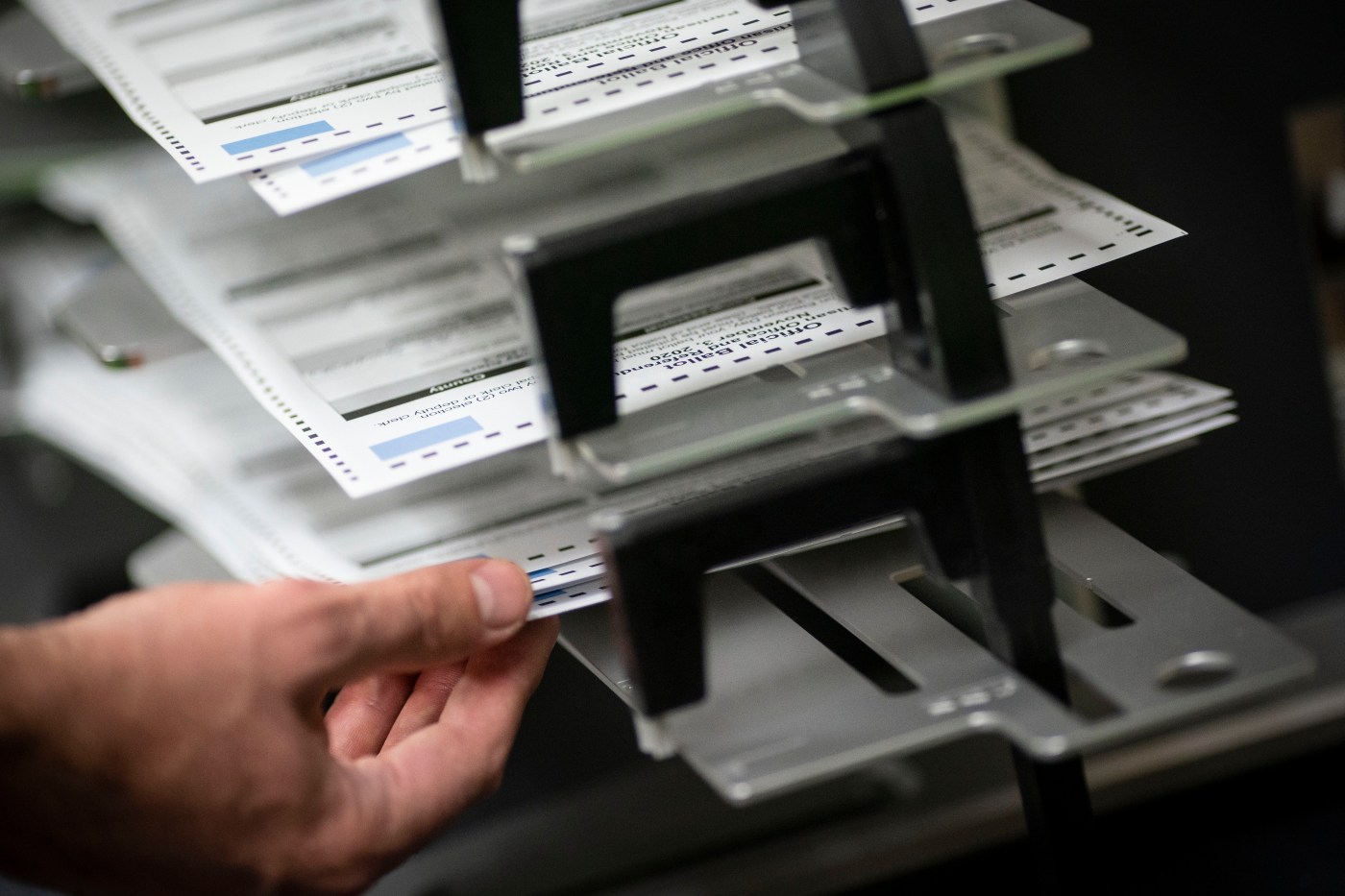
Judge allows disabled voters in Wisconsin to electronically vote from home
MADISON, Wis. — Local election officials in battleground state Wisconsin will be allowed to send absentee ballots to disabled voters electronically in November’s presidential election, a judge ruled Tuesday.
Dane County Circuit Judge Everett Mitchell issued a temporary injunction that allows voters who self-certify that they can’t read or mark a paper ballot without help to request absentee ballots electronically from local clerks. The voters can then cast their ballots at home using devices that help them read and write independently. They will still be required to mail the ballots back to the clerks or return them in person, the same as any other absentee voter in the state.
The injunction is part of a larger lawsuit that Disability Rights Wisconsin, the League of Women Voters and four disabled voters filed in April. The plaintiffs argued in the filing that many people with disabilities can’t cast paper ballots without assistance, compromising their right to cast a secret ballot, and struggle to return ballots through the mail or in-person.
“While we expect the decision to be appealed, this is an exciting day for Plaintiffs and other voters with print disabilities who have been fighting for the dignity of voting like everyone else: privately and independently,” Debra Conmiller, executive director of the League of Women Voters of Wisconsin, said in a statement.
Any eligible voter can vote by paper absentee ballot in Wisconsin. Anyone could request an absentee ballot electronically until 2011, when then-Gov. Scott Walker signed a Republican-authored law that allowed only military and overseas voters to use that method.
Attorney General Josh Kaul, a Democrat, opposes allowing disabled voters to request electronic absentee ballots. His lawyers argued during a hearing on Monday that state election officials don’t have time before November to train Wisconsin’s roughly 1,800 local clerks in how to handle electronic ballot requests from disabled voters and create ballots that can interact with the voters’ assistive devices. They warned the move would only create confusion and raise security risks.
The plaintiffs countered that an electronic ballot delivery system already exists for military and overseas voters and disabled voters deserve the same treatment. They also have a constitutional right to cast a secret ballot, they maintained.
More than 30 states allow certain voters to return their ballots either by fax, email or an online portal, according to data collected by the National Conference of State Legislatures and Verified Voting, a nonpartisan group that studies state voting systems. The method has expanded in recent years to include disabled voters in a dozen states. Experts have warned, however, that electronic ballot return carries risks of ballots being intercepted or manipulated and should be used sparingly.
The plaintiffs’ lawsuit requests that Mitchell let disabled voters in Wisconsin return their absentee ballots electronically, an accommodation no other absentee voter in the state is permitted. They did not include that ask in their request for the injunction after Wisconsin Elections Commission Administrator Meagan Wolfe testified the set-up would take months and present technical issues, but the demand remains in play as the judge considers the merits of the case going forward.
State Justice Department spokesperson Gillian Drummond had no immediate comment on the injunction.
Questions over who can cast absentee ballots and how have become a political flashpoint in Wisconsin, where four of the past six presidential elections have been decided by less than a percentage point.
People with disabilities make up about a quarter of the U.S. adult population, according to the Centers for Disease Control and Prevention. A little more than a million Wisconsin adults, or one in four, are disabled, defined by the CDC as having difficulty with mobility, cognition, independent living, hearing, seeing, dressing or bathing.
Disabled people have engaged in several legal battles in recent years over access to the polls, as many Republican-led states have restricted how and when people can vote. Among the issues they have fought are limits on the types of assistance a voter can receive and whether someone else can return a voter’s mailed ballot.
Nearly 100,000 Wisconsin adults suffer from vision difficulties, according to statistics compiled by state health officials. A little more than 307,000 adults have difficulty moving, including difficulty walking, climbing stairs, reaching, lifting or carrying things.
Doug Poland, one of the attorneys for the plaintiffs, said he has no estimates of how many disabled people who haven’t voted in the past because they couldn’t fill out absentee ballots on their own may vote in November thanks to the injunction.
Related Articles
Enough signatures collected to force recall election for Wisconsin GOP leader, commission says
Judge alters Trump’s gag order, letting him talk about witnesses, jury after hush money conviction
More rain possible in deluged Midwest as flooding kills 2, causes water to surge around dam
Former North Dakota lawmaker to plead guilty to traveling to pay for sex with minor
What’s causing the devastating flooding in the Midwest?


